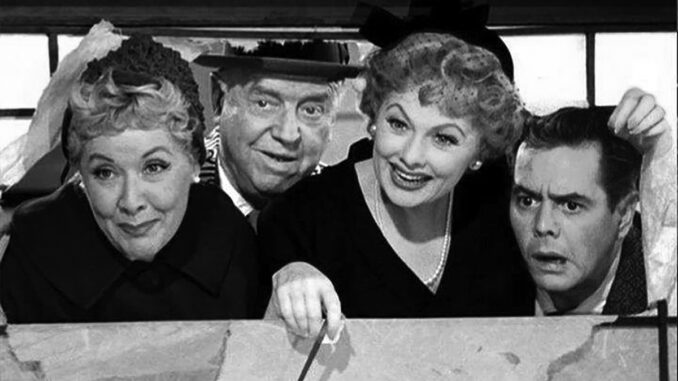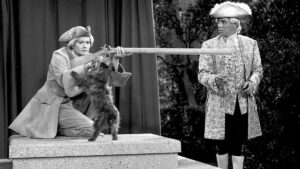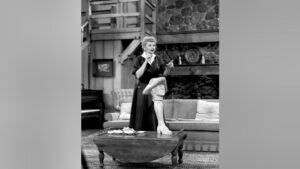
The Historic Significance of ‘I Love Lucy’ on May 6, 1957
On May 6, 1957, the beloved show I Love Lucy aired its final episode, marking the end of an era in American television. This wasn’t just the close of a sitcom—it was a cultural milestone that reshaped television and set standards for decades. How did a comedy about a quirky housewife make such an impact? Let’s journey back to the Golden Age of Television to uncover the secrets behind this iconic show and its unforgettable finale.
What Made ‘I Love Lucy’ a Television Phenomenon?
Few shows have captivated audiences the way I Love Lucy did. Starring Lucille Ball and Desi Arnaz, the series brought laughter, love, and relatable humor to millions. But it wasn’t just the comedic genius that kept fans glued to their screens; it was the pioneering production techniques, innovative storytelling, and bold breaking of traditional boundaries.
A Revolutionary Sitcom that Redefined Television
Unlike any show before it, I Love Lucy introduced groundbreaking filming techniques. From the use of multiple cameras to shooting in front of a live studio audience, I Love Lucy set a standard that sitcoms would follow for years to come.
Lucille Ball and Desi Arnaz: A Real-Life Love Story

One of the most captivating elements of I Love Lucy was the chemistry between Lucille Ball and Desi Arnaz, both on-screen and off. Their real-life marriage brought authenticity to their portrayals, making audiences feel invested not only in the fictional Ricardo family but also in Ball and Arnaz’s relationship.
The Last Episode: What Made It So Special?
When I Love Lucy aired its final episode on May 6, 1957, fans were both saddened and mesmerized. Unlike typical finales, the episode wasn’t full of flashbacks or sentimental goodbyes. Instead, it was a continuation of the show’s classic humor, with Lucy finding herself in a comical mishap, a true hallmark of the series.
Why Did ‘I Love Lucy’ End at Its Peak?
So, why end a show that was still topping ratings charts? The decision was partly due to the personal dynamics between Lucille Ball and Desi Arnaz, whose marriage was under strain. But beyond that, both actors felt it was time to pursue new challenges.
The Impact of ‘I Love Lucy’ on Television
I Love Lucy left an indelible mark on TV, shaping everything from sitcom formats to the role of women on screen. The show empowered female comedians, broke cultural barriers, and set a blueprint for future TV shows.
Setting Standards for Sitcoms
The show’s innovative three-camera setup became the industry standard, creating a more dynamic viewing experience that allowed audiences to feel like they were right in the middle of the action.
Redefining Female Roles in Television
Lucille Ball’s portrayal of Lucy Ricardo broke away from traditional female stereotypes, showing a woman who was independent, humorous, and unafraid to challenge norms. She became a role model for women both in and outside the entertainment industry.
The Legacy of Lucille Ball and Desi Arnaz

The legacy of I Love Lucy lives on, largely due to the visionary leadership of its stars, Lucille Ball and Desi Arnaz. Together, they didn’t just play characters on a show; they created a TV empire, starting their own production company, Desilu Productions, which would go on to produce classic shows like Star Trek and The Untouchables.
How ‘I Love Lucy’ Changed Comedy Forever
The humor on I Love Lucy was unique, blending physical comedy with quick wit. Lucille Ball’s comedic timing and talent for physical gags became an integral part of the show’s charm, influencing comedians for generations.
Viewer Loyalty: A New Level of Audience Engagement
Fans didn’t just watch I Love Lucy; they became a part of it. Viewers were captivated by the ongoing adventures of Lucy, Ricky, Ethel, and Fred, forming an emotional connection that was rare for the time.
The First True “Fandom”
I Love Lucy fostered a sense of community among viewers, who eagerly anticipated each episode. This fan engagement was unprecedented and laid the foundation for the concept of “fandom” that we see today with popular shows.
How the Final Episode was Received by Fans
The final episode was met with mixed emotions. Audiences were devastated to say goodbye, yet they were grateful for the joy the show had brought into their homes. The legacy of the last episode resonates even today, as fans revisit the show’s episodes and recall its final airing.
Where Did the Cast Go After ‘I Love Lucy’?
After the show ended, Lucille Ball and Desi Arnaz continued to work in television, although their partnership eventually ended with their divorce. Ball went on to star in other series, including The Lucy Show, while Arnaz took on a more behind-the-scenes role.
A New Era for Lucille Ball
Lucille Ball remained a staple in television, continuing her legacy as one of America’s most beloved entertainers. Her career, spanning decades, only grew after I Love Lucy, solidifying her place as a TV icon.
Desi Arnaz’s Transition to Producing
After I Love Lucy, Arnaz dedicated himself to producing and directing, contributing to the rise of other popular shows. His pioneering spirit continued to influence the industry even after his acting days were over.
The Show’s Ongoing Influence on Pop Culture
Decades later, I Love Lucy remains a cultural touchstone. The show’s humor, memorable characters, and groundbreaking production techniques have kept it relevant in modern pop culture.
The Birth of Syndicated Television
I Love Lucy was one of the first shows to enter reruns, creating the model for syndication that continues to fuel television networks today. It’s a testament to the show’s timeless appeal that audiences still laugh at Lucy’s antics.
Memorable Catchphrases That Stuck
Lucy’s catchphrases, like “Lucy, you got some ‘splaining to do,” remain iconic, capturing the playful essence of the show. These lines continue to be referenced in pop culture, demonstrating the show’s lasting impression.
Why ‘I Love Lucy’ Remains a Classic
What makes I Love Lucy a timeless classic? It’s the universal themes of love, friendship, and laughter, delivered with charm and wit. In an era where television was still finding its voice, I Love Lucy spoke directly to the hearts of its audience.
Conclusion
May 6, 1957, marked the end of I Love Lucy, but the impact of this groundbreaking show endures. Lucille Ball and Desi Arnaz’s creation transformed the entertainment landscape, giving birth to a golden era of television and leaving an unforgettable legacy. The humor, innovation, and charm of I Love Lucy continue to bring joy, reminding us why it’s one of the most cherished shows of all time.
FAQs
1. Why did I Love Lucy end after six seasons?
I Love Lucy ended due to the personal dynamics between Lucille Ball and Desi Arnaz, along with their desire to pursue new projects.
2. What was unique about the final episode of I Love Lucy?
The final episode didn’t feature a typical series finale but kept the classic comedic style of the show, giving fans one last taste of Lucy’s antics.
3. Did Lucille Ball and Desi Arnaz work together after I Love Lucy?
Yes, although they later divorced, they continued to work professionally, particularly through their company, Desilu Productions.
4. How did I Love Lucy impact future sitcoms?
The show introduced the three-camera setup and live audience filming, techniques that became standard in sitcom production.
5. Why is I Love Lucy still popular today?
Its timeless humor, relatable characters, and pioneering spirit have helped I Love Lucy remain a beloved classic across generations.